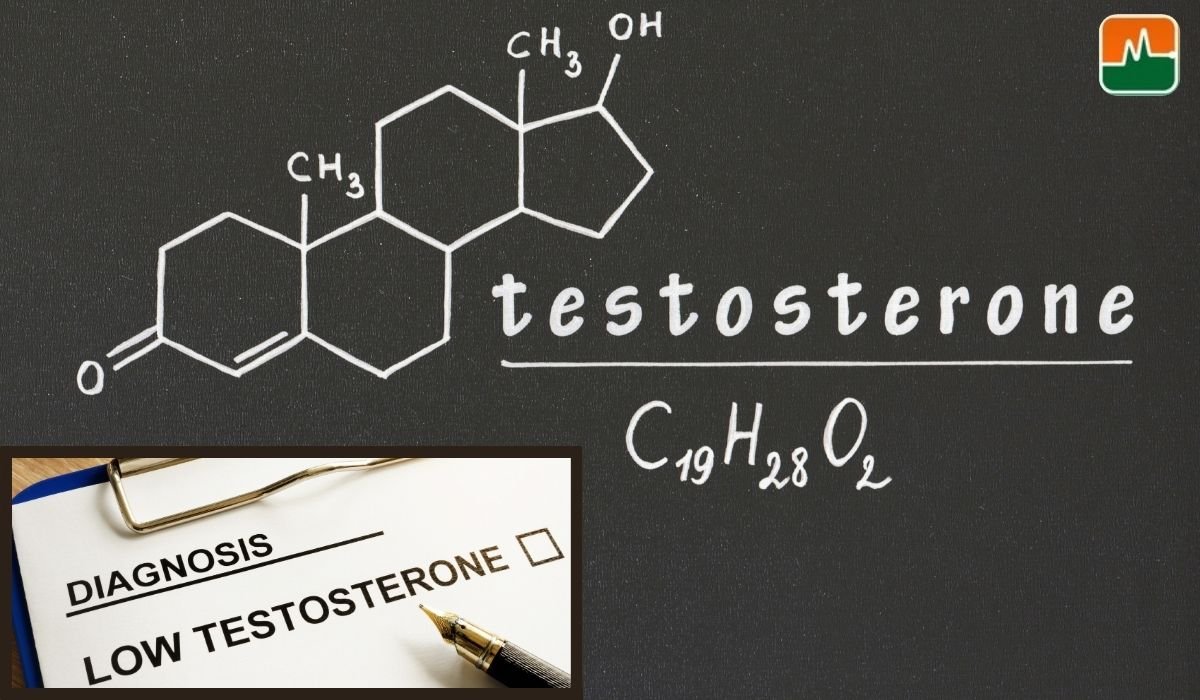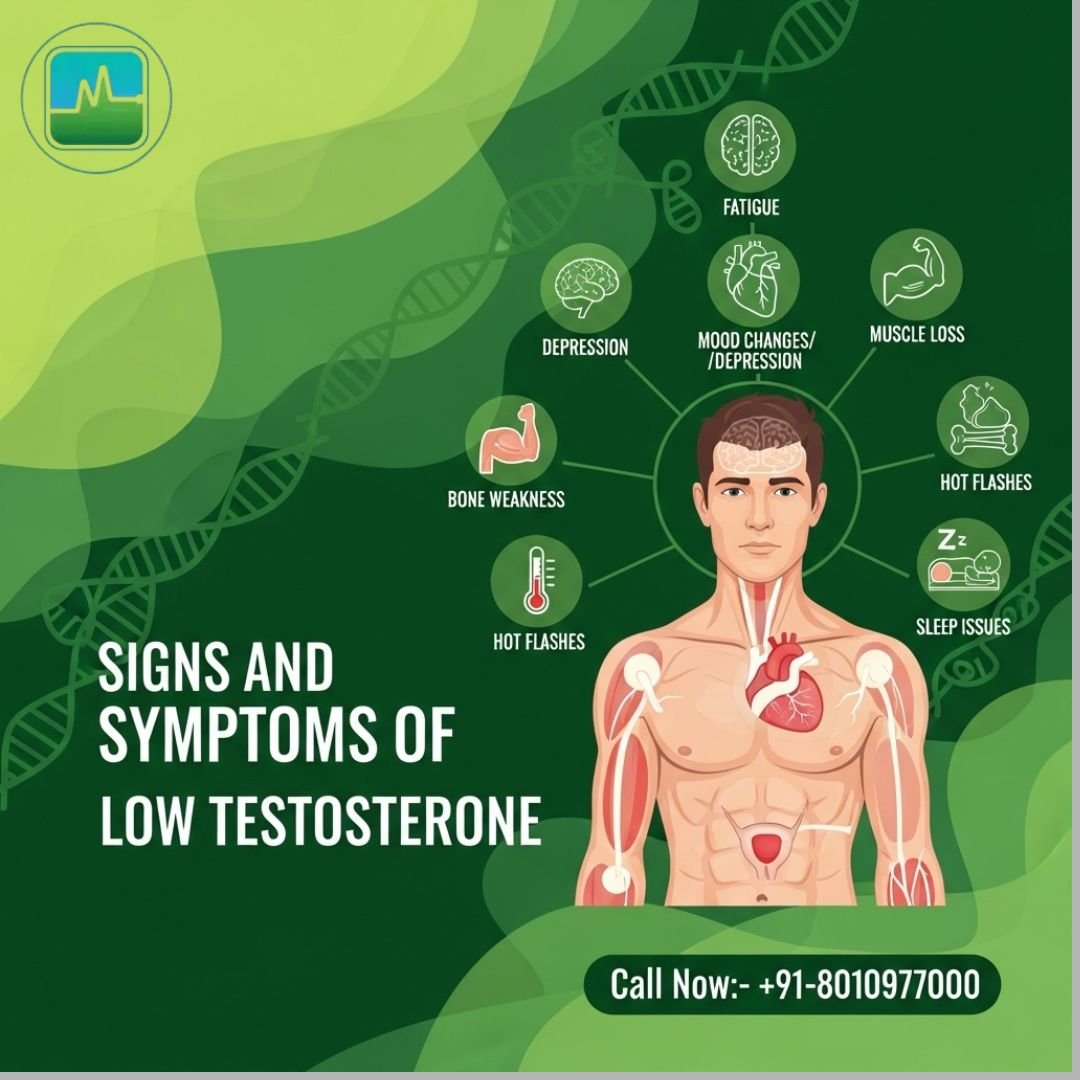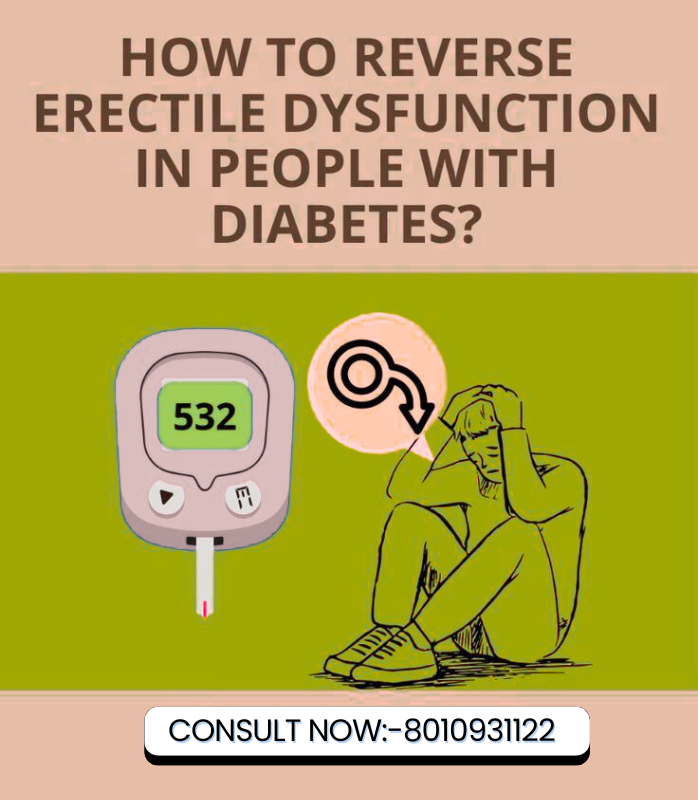Testosterone is often thought of as the main hormone for muscle growth and sex drive, but its effects extend far beyond that.
It affects everything from mood regulation to cognitive function, energy levels, and overall well-being.
As men age, testosterone levels naturally decline, but sometimes low testosterone (low T) can go unnoticed for years, causing subtle but impactful symptoms.
Read More– 10 Reasons and Remedies for Low Sex Drive in Men
Fatigue and low energy
One of the most common, but often overlooked, symptoms of low testosterone is persistent fatigue. Even after adequate rest, men with low testosterone often feel tired and lack the energy for daily activities. This fatigue can affect both physical and mental performance.
Low Libido
Testosterone is directly related to libido, and low levels can lead to a significant decrease in sexual desire. If you feel a loss of interest in sex, or if you are not experiencing spontaneous erections as before, this could be a sign of low testosterone levels.
Mood Swings and Irritability
Testosterone influences mood regulation. A decrease in testosterone can cause mood swings, increased irritability, and even feelings of depression or anxiety. Men with low testosterone might feel more down or “low” without a clear cause, which can affect relationships and quality of life.
Loss of Muscle Mass and Strength
Testosterone plays a key role in building and maintaining muscle mass. As testosterone levels drop, many men may notice a gradual loss of muscle tone and strength, even with regular exercise. This is due to reduced protein synthesis and muscle repair abilities. Additionally, fat can accumulate more easily.
Increased Body Fat
Low testosterone levels are often associated with an increase in body fat, especially around the abdomen. This can be due to the hormone’s role in regulating fat metabolism. Men may notice a change in body composition, with increased abdominal fat despite maintaining the same diet and exercise routine.
Memory Problems or “Brain Fog”
Testosterone is not only important for physical health but also for cognitive function. Low levels can result in brain fog, memory lapses, and difficulty concentrating. This can affect both professional and personal life, making it hard to stay focused and perform mental tasks effectively.
Reduced Bone Density
Testosterone helps maintain bone density, so low levels can lead to osteoporosis (weakened bones). Men with low testosterone may not experience immediate symptoms, but over time, they could be more prone to fractures or joint pain. It’s often unnoticed until bone density tests reveal a problem.
Sleep Disturbances (Insomnia)
Testosterone levels are linked to sleep patterns, and a decrease in testosterone can cause insomnia or disrupted sleep. Men with low testosterone may have trouble falling asleep, staying asleep, or experiencing poor-quality sleep. Poor sleep, in turn, exacerbates other symptoms like fatigue and irritability.
Conclusion:
Many men with low testosterone experience symptoms that are not immediately recognized as related to hormone imbalances. If you’re experiencing any of these symptoms, it’s essential to consult a healthcare professional to get your testosterone levels tested.
Tip: Lifestyle changes such as regular exercise, a balanced diet, stress management, and adequate sleep can help maintain healthy testosterone levels, along with medical treatments like testosterone replacement therapy (TRT) if necessary. Always seek medical advice before starting any treatment.











Leave a Reply